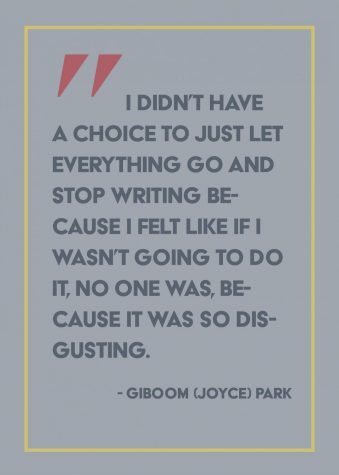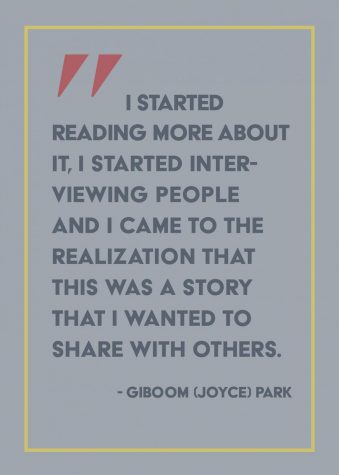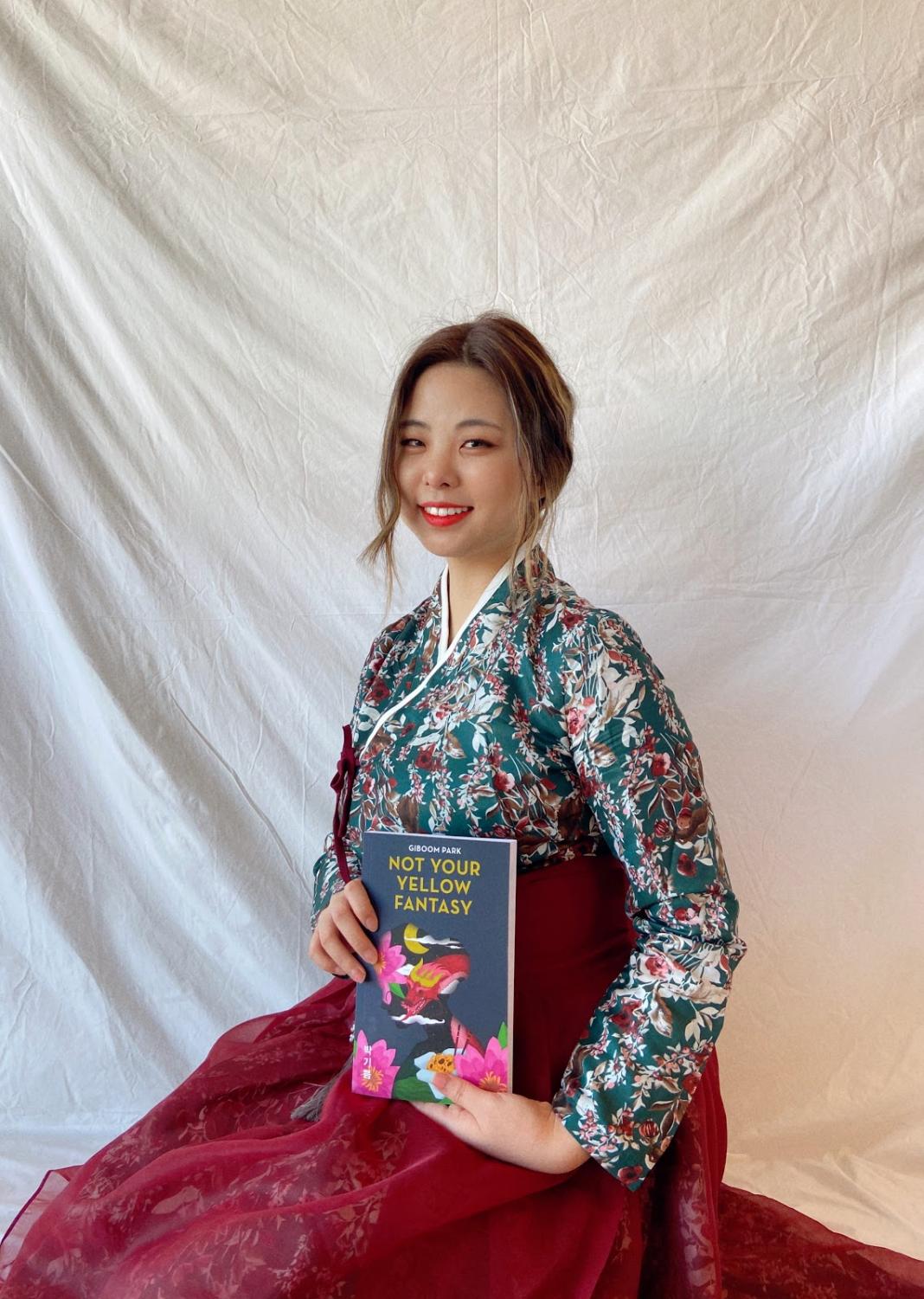“Not Your Yellow Fantasy”
Weinberg junior on writing, racism and success
January 28, 2021
Northwestern fraternity parties aren’t usually the beginning of a 244-page book, but for Weinberg junior Giboom (Joyce) Park, they were a catalyst for her book “Not Your Yellow Fantasy: Deconstructing the Legacy of Asian Fetishization” on racial fetishization, from its history to how it plays out in today’s world.
At one of her first frat parties freshman year, a guy asked her what “kind” she was. When she said she was Korean American, he went on and on about how that was “the best kind” and how much he loved Korean culture. He told his friend that he was going to take her home, so Park and one of her friends ran away from the party, she said. As they were running, she could see him chasing her in the corner of her eye.

Park had experienced similar comments throughout high school and on dating apps. But that night was a tipping point, leading her to research yellow fever, or the desire to be with an Asian woman due to racial stereotypes. She also hoped it would be a way to deconstruct her own trauma in a way that would be healthy and beneficial.
“That experience kind of catalyzed my frustration with yellow fever, with Asian fetishization in general and the phenomenon of BIPOC women and men being stereotyped based on their race on dating apps and in the world of sex,” she said. “I started reading more about it, I started interviewing people and I came to the realization that this was a story that I wanted to share with others.”
Park’s writing process started last January, after being recruited by a professor from the Creator Institute at Georgetown University, a program which helps young authors write and publish their own books. By mid-summer, she had finished a manuscript and began editing, finding illustrators, crowdfunding and promoting “Not Your Yellow Fantasy.” It was published in December, less than a year after she started the writing process.
The book became the top seller in multiple categories on Amazon in its first week and is the product of Park’s own experiences, those of over 50 interviewees and hours of research online to create the book.
“There’s one chapter specifically on pornography, sex trafficking and mail-order brides, and I actually had to censor out a lot of the original content that I had in it. I almost registered for a mail order bride website,” she said. “I didn’t have a choice to just let everything go and stop writing because I felt like if I wasn’t going to do it, no one was, because it was so disgusting.”
Park managed the emotional and mental toll of working on her book on top of her triple major with support from her friends, she said. One friend would comb through Pornhub and Reddit with her so she wouldn’t be alone, while others even helped with illustrations peppered throughout the book.
Weinberg junior Angel Wang, who co-founded an art club with Park, was happy to contribute as an illustrator when Park reached out.

“I think at one of our club meetings she said that she was working with a professor to come up with a book, and then she actually ended up doing it and publishing it. I think it’s so amazing, and I’m really happy that I got to be part of it,” Wang said.
Park’s book has reached far past her friends at NU, however. Through the help of social media, Park’s work gained traction even before publication. She worked with Asian American activist organizations who picked up her book, and even collaborated with the popular Instagram account @soyouwanttotalkabout, authoring a post on sexual racism. Recently, she’s been on multiple podcasts, hosted seminars and moderated an event on Clubhouse.
Medill junior Mary Yang said she is proud of her friend’s accomplishments and the impact it has had on a wide audience, but isn’t surprised, she said.
“I found myself relating to the story she told about being a freshman in college and having a guy comment on the color of your skin, and just becoming really aware of it,” Yang said. “I think some of the stories are hard to get through, because I can relate in a negative way, but it was empowering.”
For Park, that’s a payoff that makes the difficult process of researching, writing, editing and promoting her book worth it.
“Even if it’s just one person who feels seen, that’s all I need,” Park said.
Email: [email protected]
Twitter: @haley_fuller_
RELATED STORIES:
— SESP junior Natasha Sondakh prepares to publish debut novel exploring Indonesian identity
— Northwestern undergraduate finds popularity on TikTok cooking Asian dishes
— Desi-American women fight period stigma during Asian Pacific American Heritage Month

